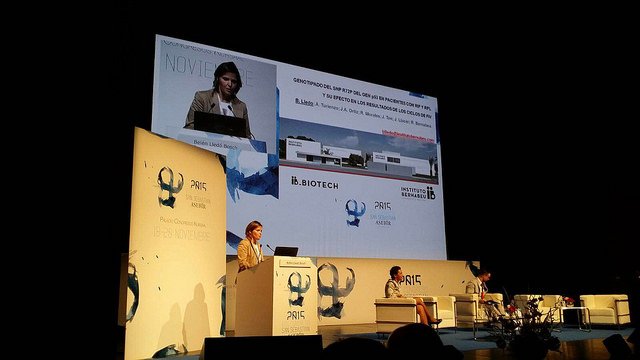Presentation on research carried out on gene p53 in patients with repeated implantation failure and recurrent pregnancy loss
01-12-2015

A presentation on continued research on work previously awarded a prize was given in the VIII edition of the congress organised by the Spanish Association for the Study of Biology and Human Reproduction held in San Sebastian, Spain, in November. R72P SNP GENOTYPING OF THE p53 GENE IN PATIENTS WITH REPEATED IMPLANTATION FAILURE OR RECURRENT PREGNANCY LOSS AND THEIR EFFECT ON IVF CYCLE RESULTS.
Implantation failure and recurrent pregnancy loss are the main causes of recurrent IVF failure. Despite the fact that over 50% are down to genetic, anatomical, endocrine and auto-immune issues, the reasons behind a substantial number is unknown. Certain environmental or lifestyle factors might explain the etiology in such cases. Certain genetic variants (polymorphisms) may also increase the risk of such pathologies.
Results obtained in previous research work (presented and awarded a prize in the last edition of ASEBIR) demonstrated that a variant in the p53 gene increases the risk of recurrent pregnancy loss and implantation failure as well as poorer results in in vitro fertilisation cycles.
Based on these results, the research was opened up to include the analysis of a greater number of genetic variants which affect other genes. The aim was to determine if they are more common in patients suffering from RIP or RPL and are, therefore, risk factors. The results indicate that there is a greater number of carriers of the p53 variant and APOE4 amongst patients with RIF and RPL. This could, therefore, explain the pathology. In the case of IL-11, one of its variants tends to have a connection to reproduction issues of this kind. To conclude, neither the IL-10 nor the VEGFA variants proved to be more prevalent in those patients included in the study. This information is of great importance since, along with other data, it could help to develop diagnosis tests to detect the risk of RIF and RPL before embarking on treatment.
In the Implantation Failure and Recurrent Pregnancy Loss Unit in Instituto Bernabeu, a multi-disciplinary approach is taken when working with these patients in order to diagnose and treat each reproduction issue on an individual basis. The team in this unit includes experts from different fields and their research work has been reflected in the study.
